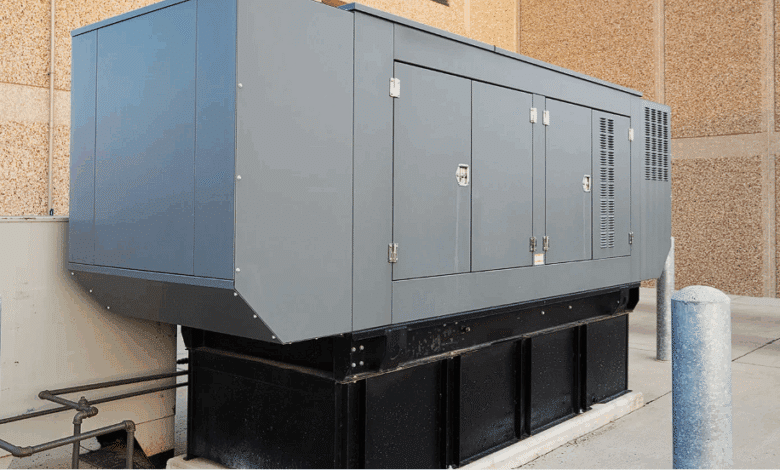Does a Whole House Generator Add Value to Your Home?

Is a whole-house generator a smart investment for your home? Can it really boost your property’s value by up to 5% and offer a return on investment (ROI) of 150%, as some companies claim? Let’s dig into the facts and benefits of installing a standby generator—and explore some of the most trusted models currently available.
Is a Whole-House Generator Worth the Investment?
Not all home improvements are created equal when it comes to increasing resale value. If you’re weighing the cost of a whole-house generator, it’s important to understand whether the payoff justifies the price tag.
A standby generator ensures that your home remains powered during outages caused by snowstorms, hurricanes, or other natural disasters. It kicks in automatically the moment the power goes out and shuts down when electricity is restored—offering seamless backup power without lifting a finger.
That peace of mind can be priceless, but it turns out it may also be profitable. According to Consumer Reports and a study by Ecousable, a professionally installed whole-house generator can increase a home’s value by up to 5.5% and offer a 150% ROI. In real numbers, a $20,000 investment could potentially translate into $30,000 in added home value.
What is a Whole-House Generator?
A whole-house generator, also known as a standby generator, is a permanent fixture installed on your property. It automatically turns on when the grid power fails and turns off when the power comes back. These systems are typically connected to your home’s natural gas or propane supply and are designed to provide continuous power to your entire home.
How Does a Standby Generator Add Value to Your Home?
In addition to the boost in resale value and ROI, installing a whole-house generator can help reduce your homeowner’s insurance premiums—especially in disaster-prone areas. Insurers often offer discounts because generators help protect essential systems and appliances, such as refrigerators, sump pumps, and HVAC units, during outages.
In one case, a homeowner received a 5% discount on the property portion of their policy after installing a generator through a licensed professional. In some situations, the discount can go up to 8–10%.
Why? Because reliable backup power reduces the risk of damage and disruption—a clear win for both homeowners and insurers.
Why Buyers Prefer Homes with Generators
Buyers today appreciate homes that come with features providing convenience and safety. A standby generator is one such feature. It signals to potential buyers that the previous owner took care of the property and thought ahead.
More importantly, it provides peace of mind. Knowing that the power will stay on during a blackout is not just practical—it’s also psychologically reassuring.
And since whole-house generators are installed outside, there’s no risk of carbon monoxide entering the living space, unlike some portable models.
Do You Really Need a Backup Generator?
Power outages are becoming more frequent in various parts of the country. Here are a few reasons why backup power is essential:
- Keeps food in the fridge from spoiling.
- Ensures sump pumps remain operational to prevent flooding.
- Powers essential devices and appliances.
- Keeps HVAC systems and electronics running.
- Charges medical and communication devices during emergencies.
Maximizing ROI with Your Generator Installation
To get the most value from your investment:
- Hire a licensed professional for code-compliant installation.
- Keep records of all installation costs to present during resale.
- Maintain cleanliness and condition of the unit.
- Add a backup fuel source in case of pipeline failure.
Standby Generators vs. Portable Generators
| Feature | Standby Generators | Portable Generators |
| Mobility | Fixed installation | Moveable and ideal for temporary use |
| Power Quality | Clean power (<5% THD) | Not all offer clean power |
| Noise | Quieter operation | Often noisy |
| Efficiency | High fuel efficiency | Lower fuel efficiency |
| Fuel Supply | Connected to natural gas or propane | Requires fuel storage |
| ROI | High ROI and boosts home value | Minimal ROI |
| Lifestyle Impact | No disruption during outages | Limited power; lifestyle adjustments needed |
| Cost | High upfront cost | Budget-friendly option |
Top Standby Generators in 2025
Here are some of the best whole-house generators we’ve found:
Editor’s Pick – 9.6/10
Generac Guardian 22KW
- 22KW on propane, 19.5KW on natural gas
- Durable, all-aluminum enclosure
- Trusted brand, automatic startup
[Check Price]
Top Pick – 9.7/10
Generac Guardian 24KW
- 24KW on propane, 21KW on natural gas
- Latest G-Force engine
- Rust-resistant aluminum housing
[Check Price]
Budget Pick – 9.5/10
Champion 8.5KW
- 8.5KW on propane, 7.5KW on natural gas
- Auto-start and low oil shutoff
- Affordable and reliable for smaller homes
[Check Price]
Pros of Whole-House Generators
- Automatic backup power during outages
- No need for manual fuel storage
- Low maintenance and clean power
- Operates quietly compared to portable models
- Safe for sensitive electronics
- Adds resale value and insurance benefits
- Eliminates risk of carbon monoxide indoors
- Professional installation ensures code compliance
Cons to Consider
- Permanent installation means it’s not portable
- Higher upfront cost
- Requires professional setup, adding to the total expense
Installing a whole-house generator isn’t just about convenience—it’s an investment in your home’s value, safety, and long-term livability. With rising climate-related power outages, more buyers are prioritizing homes with built-in power security. And with the potential for strong ROI and insurance savings, it’s a smart addition to any home improvement plan.




![How to Bypass CO Sensor on Generator – [4-Step Safety Guide]](https://www.generator411.com/wp-content/uploads/2025/08/co-sensor-on-generator-390x220.png)